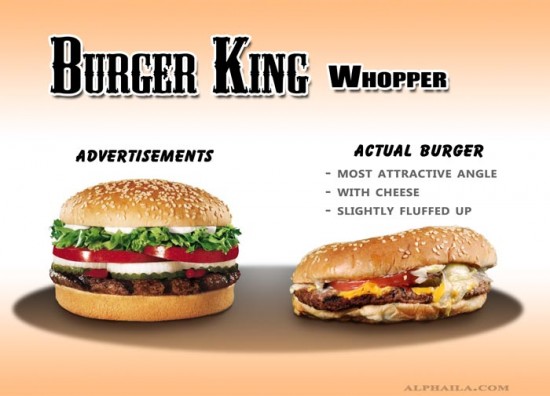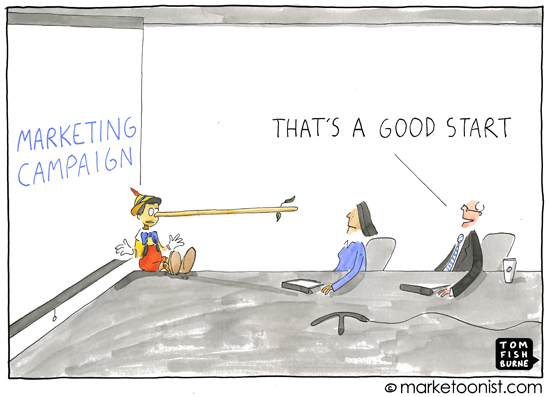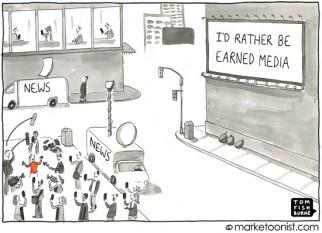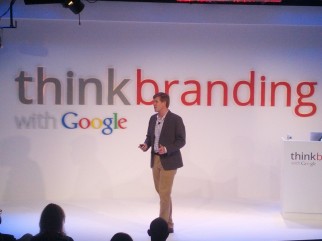“Never let the truth stand in the way of a good story,” the maxim goes. Aside from politicians, marketers have the worst rap for bending (or breaking) the truth.
We’re so used to disingenuous marketing that we come to expect it. The large print giveth what the small print taketh away. Quotes in political ads are always taken out of context. The fast food sandwich never looks like the photo. No wonder consumers don’t trust most of the marketing they see.

Nokia sparked a minor firestorm last week when it was exposed they’d faked their promotional video for the new Lumia 920. They demoed their PureView camera technology with a video shot by a professional camera, not a Lumia 920. The trick only surfaced because a critic with a keen eye spotted the cameraman caught in a reflection in the video.
Exaggeration and insincerity is so commonplace in marketing that there is tremendous power in authentic storytelling. Seth Godin shared some lessons in this post on “How To Tell A Great Story“:
“A great story is true. Not necessarily because it’s factual, but because it’s consistent and authentic. Consumers are too good at sniffing out inconsistencies for a marketer to get away with a story that’s just slapped on…
“Great stories are trusted. Trust is the scarcest resource we’ve got left. No one trusts anyone. People don’t trust the beautiful women ordering vodka at the corner bar (they’re getting paid by the liquor company). People don’t trust the spokespeople on commercials (who exactly is Rula Lenska?). And they certainly don’t trust the companies that make pharmaceuticals (Vioxx, apparently, can kill you). As a result, no marketer succeeds in telling a story unless he has earned the credibility to tell that story.”
I love the concept of marketers “earning the credibility” to tell their stories. Apple (launching a new iPhone this week) has earned it. Nokia shows us how easy that credibility is to lose.
(Marketoonist Monday: I’m giving away one signed print of this week’s cartoon. Just share an insightful comment to this week’s post by 5:00 PST on Monday. I’ll pick one comment. Thanks!)



Gaynor Simpson says
Insincerity and half truths are so commonplace across all forms of communication these days (you only have to see a politician open his mouth to know this) that we should welcome social media for its ability to unveil disingenuity. Companies like Nokia are always likely to be found out in the end as social media has created a dialogue between consumers and marketeers which strips everything bare.
Rt says
I agree; The advertised products are almost always a letdown to their real selves! A good advertisement alone will only get you a one-time sale… only a good product will keep ’em coming!
Bill Douetil says
So true, trust is paramount in a relationship between a brand and its customers. You may be surprised that is not just at the upfront stage that marketers often loose the trust, but too often when things have gone wrong. Mistakes always happen, but it is proven customers become more loyal to a brand, if the issue is dealt with in an appropriate and timely way. I have witnessed and help mitigate some potentially PR disastrous marketing mistakes – check my website case studies to see some horrors http://www.marketingrisk.co.uk/casestudies.html.
Joyce Maroney says
I completely agree with your point about the critical importance of authentic customer stories – as a B2B technology marketer, we can’t sell without them. Though we have a lot of great stories, finding customers whose legal departments are willing to allow us to share them publically has become increasingly difficult. I’m wondering what other organizations like ours have found to be persuasive strategies on this front.
BRADnDALLAS says
Tom, this is great and so true, especially in the current social media environment. If you are not honest, you WILL be called out.
With that said, it would be nice to see the flip-side article to this one. Those in marketing (or usually other departments) that try to be too truthful and specific in their marketing message. They copy and headlines become become long and convoluted, customers get scared, and the primary message gets lost.
Love the marketingtoons and commentary, keep up the great work.
Brad
Concetta Phillipps says
I too was enthralled by the huge mistake of Nokia on their video. I love their phones, but cannot believe someone would make a rookie mistake like that in a time where every video can be watched an endless number of times, zoomed in on, and analyzed by people whom are used to watching CSI.
In regards to the other companies, though, I think we walk a fine line. Take the Burger King ad, for example. We all know what the Burger King sandwich is going to actually look like, and yet, we keep believing the fantasy that such a great product can come from a fast food place and not a more expensive burger place such as Red Robin.
The marketers from BK and McD’s didn’t earn their credibility by selling the sandwich – they did it by selling the consistent fantasy that they are selling a good product. The rest of their sales come from marketing to children in an addictive manner.
Bill Carlson says
Not a frequent McD’s or BK customer but I would say the image shown here is itself an example of the point — are all BK burgers that bad? Don’t think so and yet anyone seeing this is as prone to thinking negatively about BK as those who feel positively based on seeing only the “ideal” photo, even if the realities are probably somewhere in the middle.
Is Nokia the only one who is “enhancing” their advertising imagery? We know better. We see ads all the time where something or another is faked, or at least exaggerated beyond reality. All the recent buzz about Photoshopping celebrities on magazine covers suggests it’s not limited to products.
Which SUV brand has a vehicle skiing down a mountain? How many times have we seen a supposed doctor or patient in a commercial about some medication and recognize someone as an actor? The list goes one… So where’s the outcry there?
Or perhaps, where’s the line drawn?
DSprogis says
There’s quite a contrast in the burger advertised vs the actual burger. If you could do a similar side-by-side with politicians, I wonder what it might look like.
tomfishburne says
Hi all,
Thanks for all the great perspective last week. This week’s cartoon print goes to Concetta. I really like the insight that truthfulness is less about being factual and more about being consistent. As consumers, we don’t really expect that the sandwich will look like the ad. Yes, we buy into the consistent fantasy.
-Tom
Gail Gardner says
Love this post and am adding this cartoon to one of my own today because I am so tired of people believing the lies and fantasies they’ve been conditioned to believe. People get conned – by advertising and many other ways – because they don’t want the truth.
They WANT to believe you can get rich quick or all you need is a college degree or it is easy to make money online. They worship at the feet of the con artists of the world who sell them worthless ebooks filled with what they want to hear.
They do NOT want to know the real truth. That no knight on a white horse is going to make you a princess tomorrow and businesses take time to build and that only works if you provide consistently exceptional service and products.
No, they want to go on sleeping and pretending everything is fine in the world and they’re going to turn the corner any minute and become rich and famous. It is sad – truly sad.